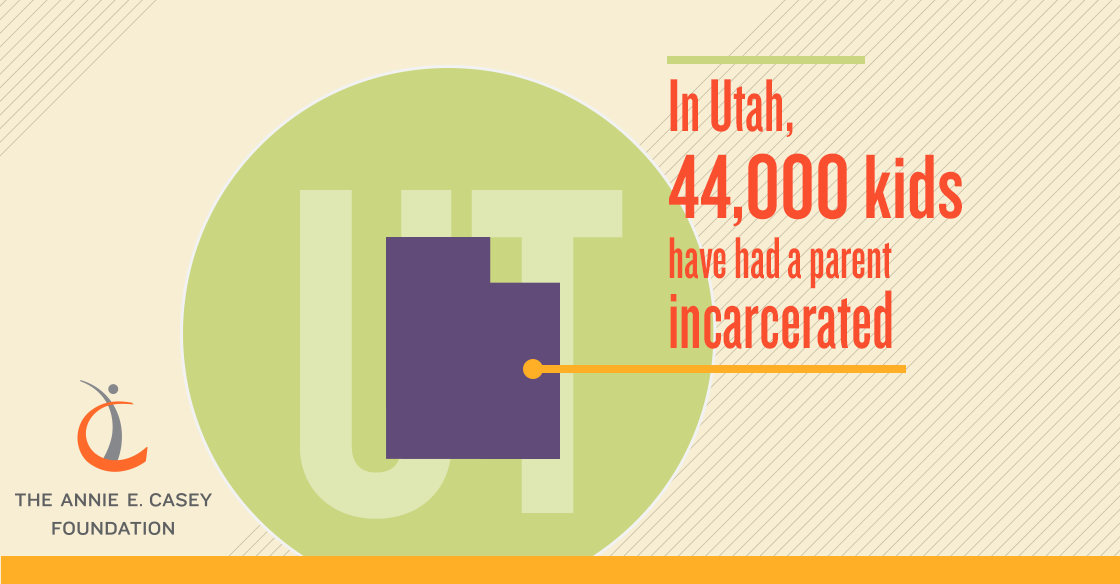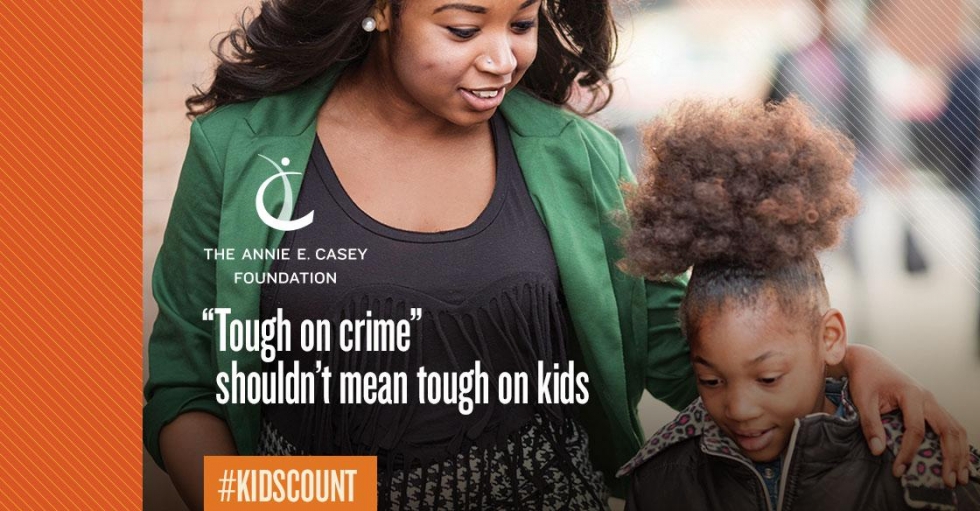The latest Annie E. Casey Foundation report, A Shared Sentence: the devastating toll of parental incarceration on kids, families and communities, states that “the most powerful step, by far” to protect the children of parents in the justice system “is to reduce our nation’s overreliance on incarceration.” Having an incarcerated parent is a traumatic experience for a child with long-lasting health effects and often leads to poverty, which is also a threat to child well-being.
 The report demonstrates that during the eighties and nineties, the number of kids with a father in prison or jail rose by 500%. Rising incarceration rates thwarted an opportunity to reduce the U.S. poverty rate by 20%; researchers point to increased incarceration as the factor that kept poverty rates from dropping.
The report demonstrates that during the eighties and nineties, the number of kids with a father in prison or jail rose by 500%. Rising incarceration rates thwarted an opportunity to reduce the U.S. poverty rate by 20%; researchers point to increased incarceration as the factor that kept poverty rates from dropping.
“While momentum for criminal justice reform continues to build, we know progress will take time. But we also know children can’t wait—nor can we as a nation afford to let them and their parents flounder, perpetuating poverty from one generation to the next.”
–Annie E. Casey Foundation
“There is no question that our country’s practice of mass incarceration is flawed, costly and in need of change,” states the report. The report lists several alternatives to overusing prisons and jails:
- Shorter sentences for nonviolent crimes (The majority of incarcerated persons are serving time for nonviolent offenses.)
- Alternative punishments to jail and prison for nonviolent offenders
- Not imprisoning people awaiting trial who can’t afford bail (People imprisoned while waiting for trial can lose their jobs, child care or homes even if they are absolved of wrongdoing.)
Another recent report released by the Sentencing Project, Fewer Prisoners, Less Crime: A Tale of Three States, profiled three states that dramatically reduced their prison populations in recent years and found that “during their period of decarceration, violent crime rates fell at a greater rate in these three states than they did nationwide.” The report concludes, “At least in three states we now know that the prison population can be reduced by about 25% with little or no adverse effect on public safety.”
Perhaps Utah should take a long look at states that are finding success in reducing the prison population. Do we also have an opportunity to improve outcomes for children and their families by reducing our prison population?
For 30 years now, Voices for Utah Children has called on our state, federal and local leaders to put children’s needs first. But the work is not done. The children of 30 years ago now have children of their own. Too many of these children are growing up in poverty, without access to healthcare or quality educational opportunities.
How can you be involved?
Make a tax-deductible donation to Voices for Utah Children—or join our Network with a monthly donation of $20 or more. Network membership includes complimentary admission to Network events with food, socializing, and opportunity to meet child advocacy experts. And don't forget to join our listserv to stay informed!
We look forward to the future of Voices for Utah Children and we hope you will be a part of our next 30 years.
Special thanks to American Express for sponsoring our 30th Anniversary Year. 






